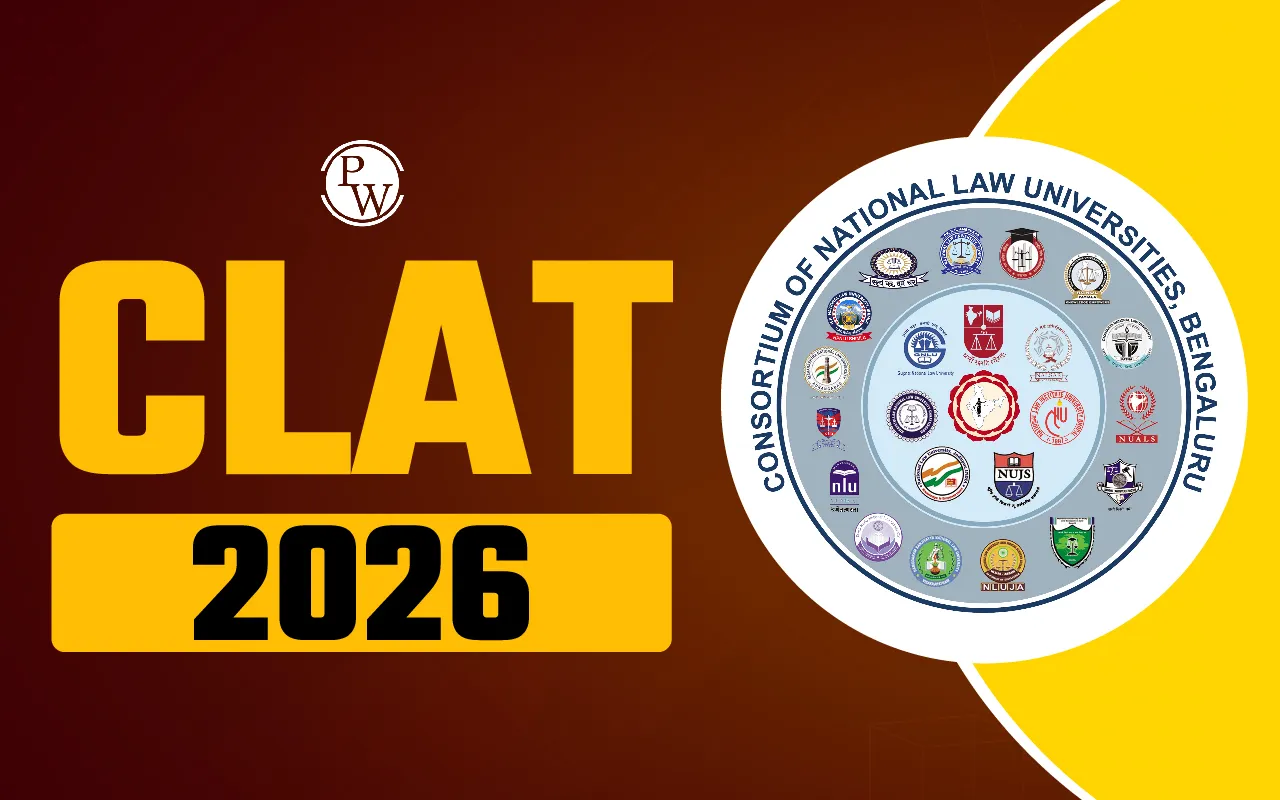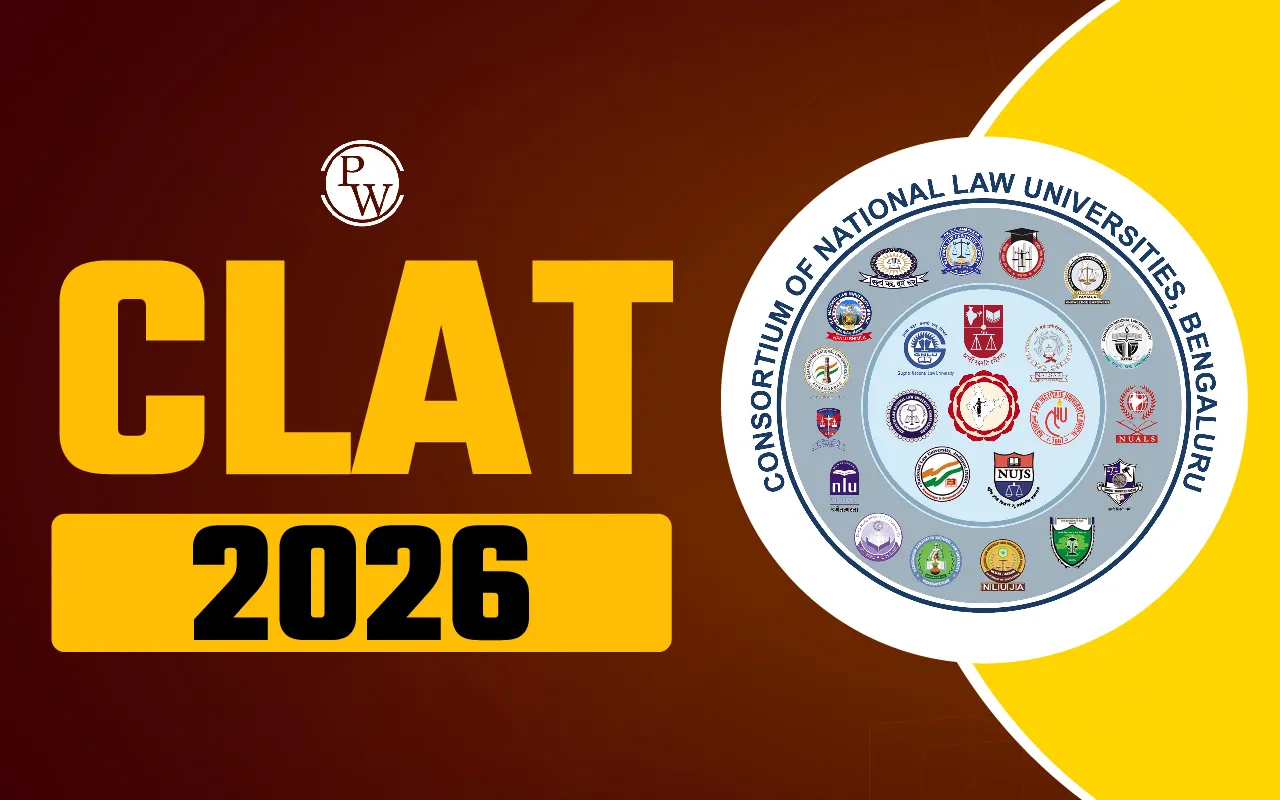

CLAT 2026 Important Notice: The Consortium of National Law Universities (NLUs) shared an important update on October 27, 2025, about CLAT 2026. They announced clear rules to support candidates with disabilities, making sure everyone gets equal chances, respect, and fair treatment during the exam.
The new rules explain how candidates with disabilities can get help to write the exam on their own, who can qualify for a scribe or reader, and how extra time will be given. These changes follow the Rights of Persons with Disabilities (RPwD) Act, 2016 and show the Consortium’s commitment to fair and inclusive testing.
CLAT 2026 Important Notice
The CLAT 2026 Important Notice applies to candidates with disabilities recognised under Section 2(s) of the RPwD Act, 2016, covering physical, visual, intellectual, and neurodiverse conditions.
Candidates who have difficulty with writing, reading, or understanding can ask for help like a scribe, reader, or tech support. If someone gets a disability after submitting their form, they can still get these accommodations by showing proper medical proof.
Accommodations to Facilitate the Independent Writing of the CLAT 2026 Exam
The Consortium has introduced reasonable accommodations to empower candidates with disabilities to independently write the CLAT 2026 exam. These provisions are designed to ensure accessibility while preserving fairness for all test-takers.
PwD candidates can choose from various support options, including:
-
Scribe/Reader/Lab Assistant: For those who need assistance in writing or reading.
-
Technological Aids: Screen readers, magnification tools, voice recognition software, and recording devices.
-
Barrier-Free Exam Centres: Equipped with ramps, lifts, wide corridors, and ground-floor seating.
Candidates who prefer not to use a scribe can use assistive technology to independently attempt the paper.
Those requiring any specific accommodation (other than scribe assistance) must email the Consortium at least 10 days before the exam date with valid documentation.
Eligibility for Availing the Facility of Scribe/Reader
The facility of a scribe or reader is available to candidates with:
-
Blindness or Low Vision
-
Locomotor Disabilities (affecting hand movement)
-
Cerebral Palsy
-
Intellectual or Neurological Disabilities
Notably, even candidates with disabilities below 40% may be allowed a scribe if certified by a competent medical authority.
CLAT 2026 Scribe Qualification Criteria
To ensure impartiality and fairness:
-
For CLAT UG: The scribe must be 2–3 academic years below the candidate’s qualification level.
-
For CLAT PG: The scribe must not belong to law or humanities streams.
Candidates can either:
-
Bring their own scribe (with valid ID and qualification proof), or
-
Request one from the Consortium’s approved panel.
These norms prevent any conflict of interest and maintain examination integrity.
Guidelines for Compensatory Time in CLAT 2026
As part of the inclusivity measures, the Consortium has implemented compensatory time for PwD candidates.
Under the CLAT 2026 guidelines, candidates will receive 20 minutes of extra time per hour of the exam duration, meaning 40 additional minutes for the 2-hour CLAT exam.
Importantly, this benefit applies irrespective of whether the candidate uses a scribe.
All medical and disability certifications must be issued by a government medical board in the prescribed format of the Ministry of Social Justice & Empowerment.
Accessible Examination Centres and Support Facilities
The Consortium of NLUs has ensured that all CLAT 2026 examination centres are inclusive and accessible.
Key accessibility features include:
-
Ramps, lifts, and wide passageways for smooth mobility.
-
Audio announcements and signage for visually impaired candidates.
-
Separate rooms for candidates using scribes or assistive tools.
-
Ground-floor seating for those with physical limitations.
-
On-site medical support staff for immediate assistance.
These efforts reflect the Consortium’s intent to make CLAT 2026 a barrier-free and equitable examination experience for every aspirant.
CLAT 2026 Data Privacy and Grievance Redressal
The Consortium has emphasised strict data protection for all candidates.
Personal and medical data shared by PwD candidates will be handled securely under the Digital Personal Data Protection Act, 2023, and the RPwD Act, 2016.
Additionally, a Grievance Redressal Committee will handle all concerns related to:
-
Accessibility issues
-
Scribe arrangements
-
Compensatory time disputes
Candidates can report grievances directly through the official Consortium website.
Commitment to Inclusive and Fair Testing
The CLAT 2026 Important Notice reinforces the Consortium’s pledge to uphold the principles of:
-
Equality – ensuring every candidate has a fair chance.
-
Accessibility – providing physical and technological support.
-
Dignity – respecting the individual needs of each aspirant.
These steps ensure full compliance with the Rights of Persons with Disabilities Act, 2016, thereby promoting fairness and inclusivity in India’s premier law entrance examination.
